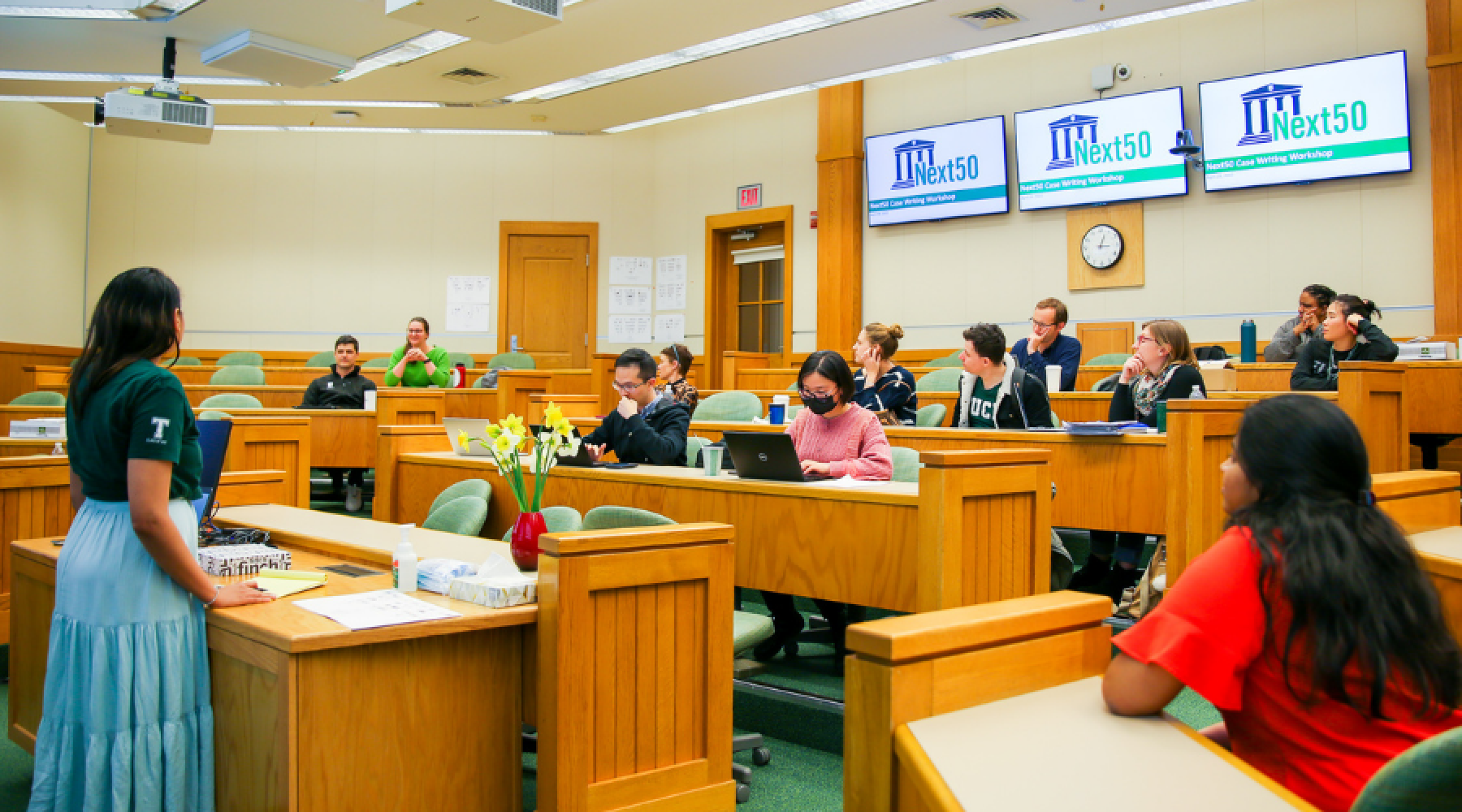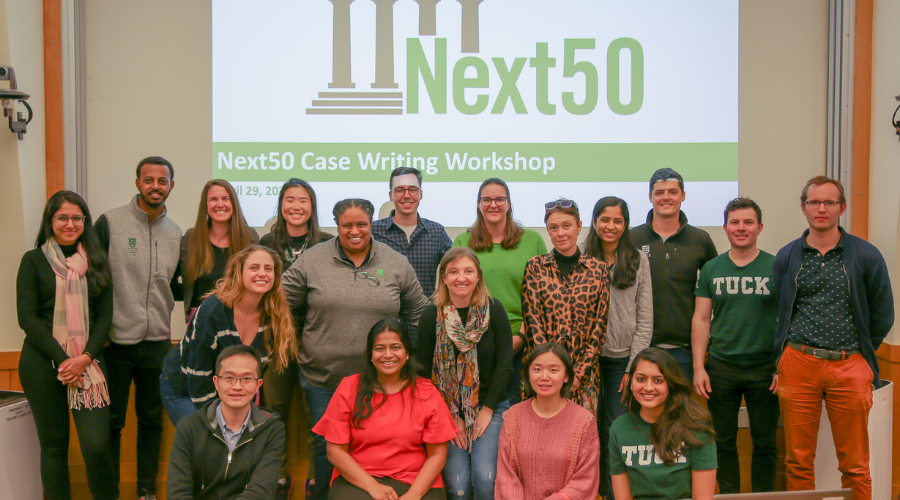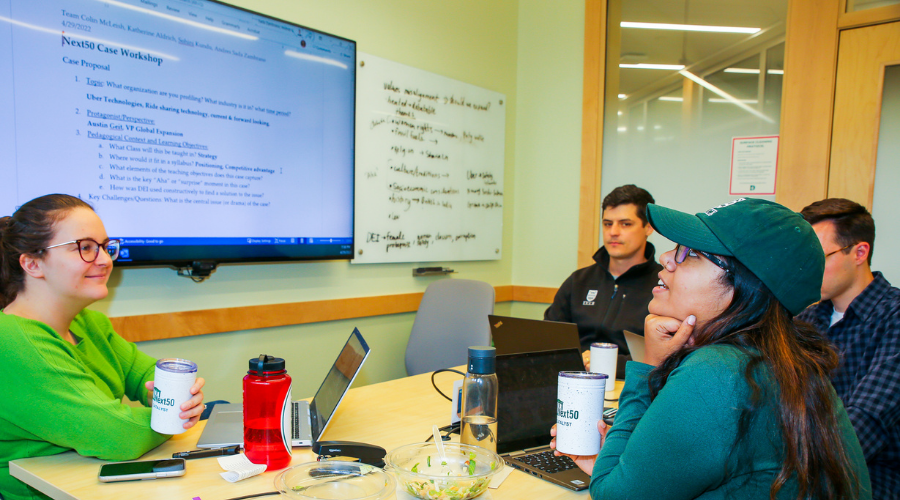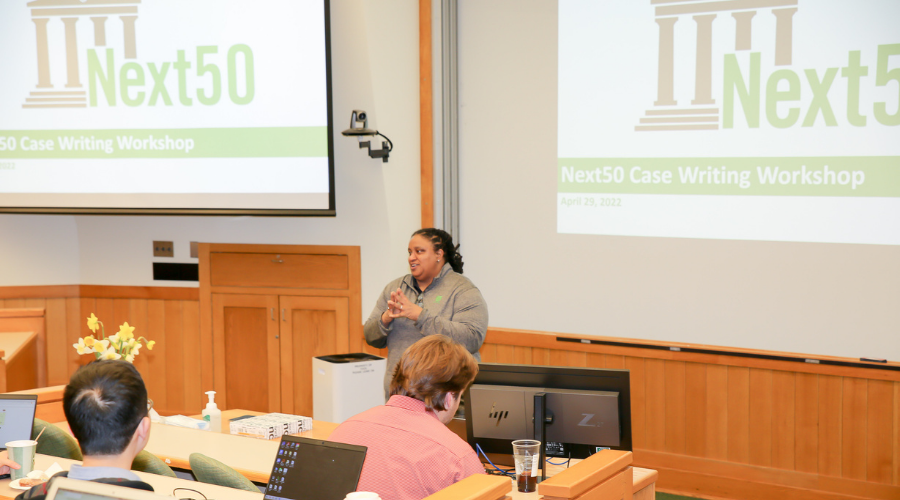
A few weeks into our first year at Tuck in 2020, some of my classmates and I noticed a pattern among the cases being taught in our classes: most of them featured white, American men as protagonists. In comparison, some of us felt we were spending relatively little time talking about female leaders—the kinds of women we could see ourselves in.
The underrepresentation of women featured in business case studies mirrored a familiar frustration—one felt by the female professional athletes who get precious little airtime or attention in the media. In my own experience as a young female athlete, I found that my favorite pro athletes were always men because men’s sports were on TV. I loved playing sports but never once entertained thoughts of becoming a professional athlete because I could never fully relate to the athletes I was watching.
Being able to see oneself in the “heroes” we see, read, and learn about matters. When students rarely see themselves reflected in the business leaders celebrated in the classroom, it negatively impacts confidence and leadership development. Not only do these business case studies help us as students explore how to approach different challenges and opportunities, but they also help us imagine ourselves as future leaders who will confront similar challenges and opportunities as we progress in our careers.
In an article about why the gender gap in cases matters, Colleen Ammerman, director of the Gender Initiative at Harvard Business School, writes, “Cases send a broader message about what leadership looks like. When the leader archetype is very narrowly defined, it not only hinders the ability of students who don’t share those characteristics to identify with the protagonist, it also reinforces stereotypes about who ‘real leaders’ are.”
The desire to feature more diversity and inclusion in business case studies led to the creation of an initiative called Next50. Started at Tuck in the fall of 2020, Next50 (now the Next50 DEI Dean’s Fellowship under Dean Dia Draper) was originally founded as a student group by eleven T’21s and T’22s eager to see a more diverse set of leadership voices showcased in the classroom. It has since expanded to a team of 27 (12 Fellows and 15 Associates).

In April, Next50 hosted a case writing workshop where students learned how to write cases from Professor Gavetti and Carl Kreitzberg T’22.

Students applied these learnings by researching and writing a short case proposal that could be adopted into a Tuck course.

Dia Draper, associate dean for diversity, equity, and inclusion, addresses workshop attendees. Under her leadership, Next 50 has expanded to a team of 12 fellows and 15 associates.
We recognize this is an opportunity not just for Tuck but for all business programs. Tuck has the opportunity to be a leader in identifying and teaching a set of cases that more closely reflect the changing world that my classmates and I will encounter when we graduate. Next50 has set an ambitious goal for Tuck: by 2025, 50% of cases in Tuck’s curriculum include gender, racial, and/or international diversity. This will be achieved through the selection of cases taught but, more importantly, through a collaboration among faculty, students, and staff for the creation of original cases, including through a case competition the Next50 team will host for the first time next winter.
Long term, we see the Next50 initiative expanding beyond Tuck as we partner with other MBA programs to devote more resources and expand the capacity for more diverse representation in business case studies. We already see a massive appetite for changing the narrative across students, alumni, faculty, and staff both at Tuck and other MBA programs—all of whom have reached out asking how they can support the effort. We have seen firsthand how strongly and broadly the mission of changing perception resonates.
The strength of the Next50 mission has helped us attract a strong and dedicated team of Tuck students and partners this year. The drive of our team is what will stay with me most when I graduate in June.
We started the academic year building out and recruiting for the Fellowship program with Dean Draper. Since then, the team has hit some major milestones, among them:
My fellow co-chairs Tabitha Bennett, Gissell Castellon, and I are thrilled to pass the torch to next year’s co-chairs, Devu Nair and Prathyusha Yeluri. Devu, Prathyusha, and the Next50 team will continue to grow the program and connect with the Tuck community, establish a roadmap with faculty, identify opportunities for more original case scholarship, and much more.